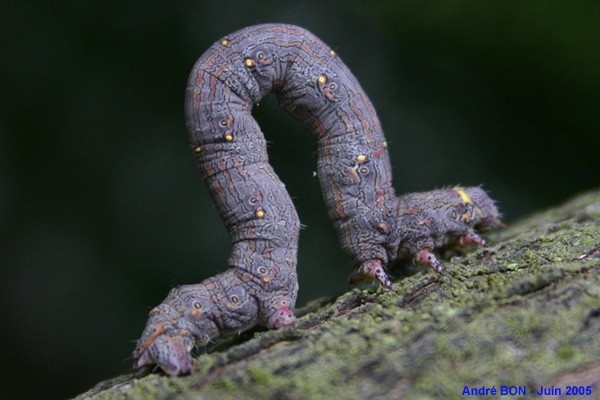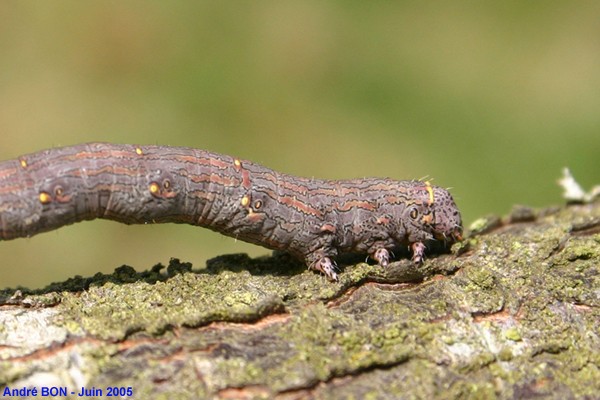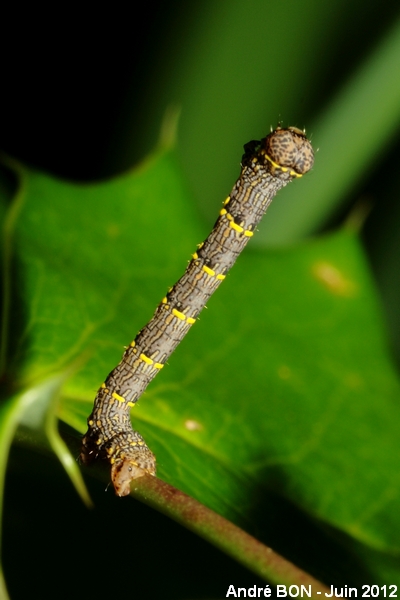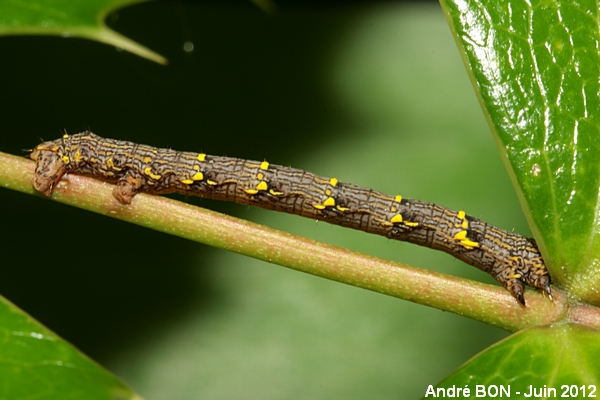



| Brindled Beauty (Lycia hirtaria (Clerck, 1759)) |




|
|
Scientific name: Lycia hirtaria (Clerck, 1759) Common name: Brindled Beauty French name: Phalène hérissée Order: Lepidoptera Suborder: Heterocera Family: Geometridae Subfamily: Ennominae Wingspan: 42-52 mm Biotope: Forests, parks and gardens. Geographic area: All Europe and east to Asia Minor. Flight time: Early April to late May. Number of generations : 1 Caterpillar: Reddish and purple longitudinal lines with yellow spots on the sides. Host plant: Many trees including Birch (Betula), Common Alder (Alnus glutinosa), Hawthorn (Crataegus monogyna) and Beech (Fagus sylvatica). |
The Brindled Beauty has a thick and hairy body. The wings show cross lines and a fringe. During the day, the Brindled Beauty rest on the trunks of trees or stone walls. They over winter as chrysalis. |
| [To know more about the Brindled Beauty] [Next picture] [Top] |

|
At this time I have only pictures of the caterpillar, just waiting to see an imago. I found this caterpillar in the foliage of a Prunus I was cutting back. I put it back in the remaining foliage after the photos. |
| [To know more about the Brindled Beauty] [Next picture] [Previous picture] [Top] |

|
Here is a close view of the caterpillar's head. Its colour and its twig-like shape seems to make an efficient camouflage. |
| [To know more about the Brindled Beauty] [Next picture] [Previous picture] [Top] |

|
I have observed this caterpillar on Oregon grape (Mahonia aquifolium). |
| [To know more about the Brindled Beauty] [Previous picture] [Top] |

|
Unfortunately the head is hidden … |